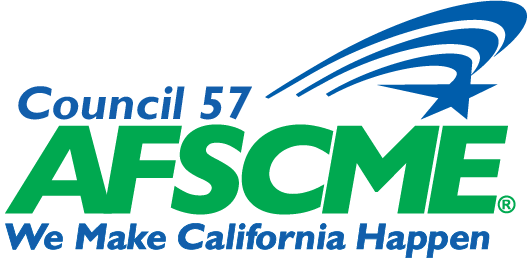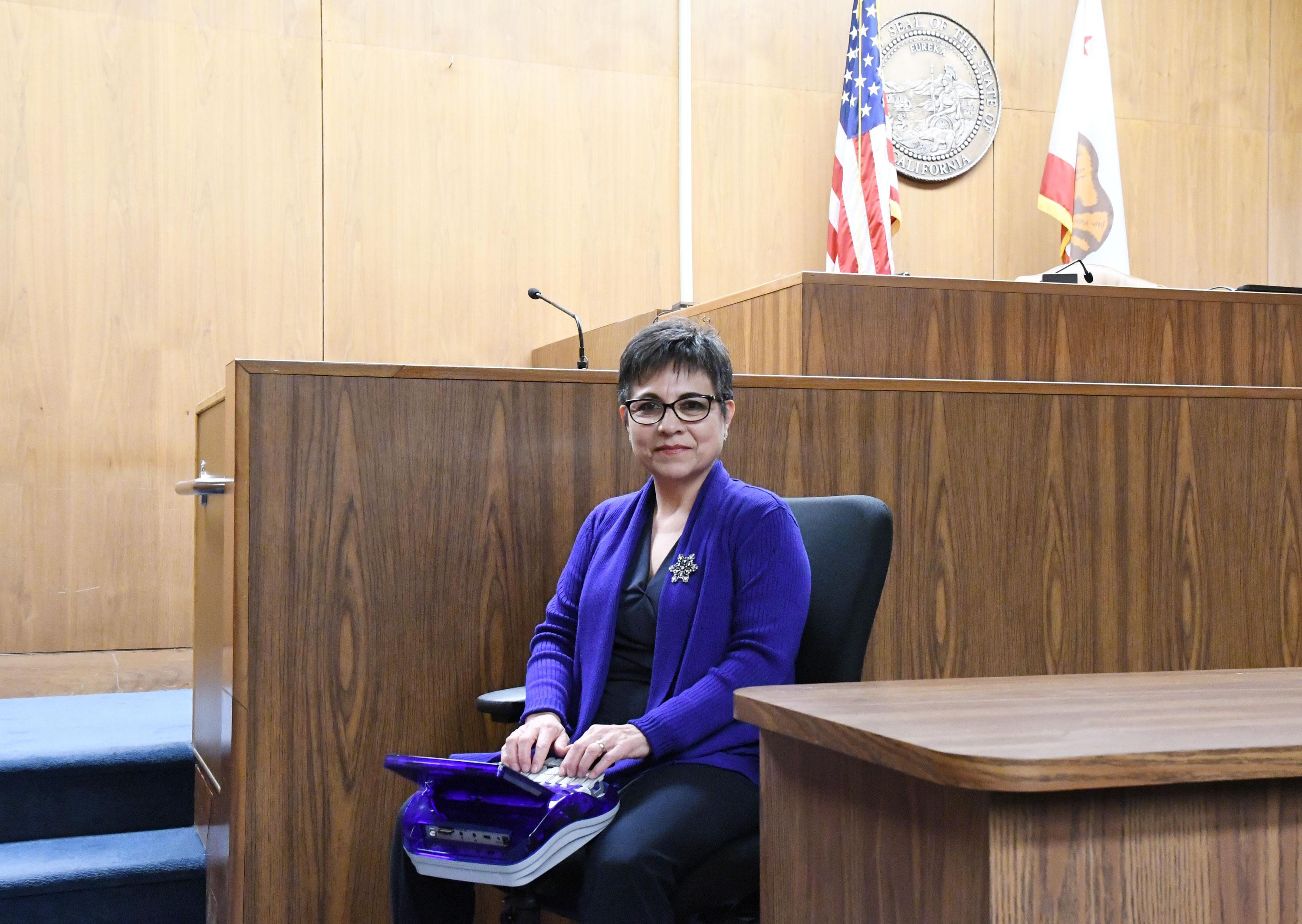AFSCME members recently joined members of SEIU and IFPTE to help get a bill passed in California that will make it more fair and equitable for court reporters to electronically file transcripts of court proceedings.
In October, Gov. Jerry Brown signed AB 1450, a bill amends the existing rules for official court reporters on how to file transcripts in an electronic format instead of traditional paper copies.
AFSCME Local 10 member Florence Ortiz was one of the court reporters who stood up for our members during the process. Ortiz and members from SEIU and IFPTE, the other unions that represent official court reporters in the state, did the research to make sure the language in the new bill gave court reporters time to adapt to the new technology that will be required to improve the service they provide to the public.
“It’s about protecting the public’s right to accurate transcripts,” Ortiz said. “That’s why we put so much time and energy into it.”
Unlike most other public service employees, court reporters pay for their own work equipment, in addition to the maintenance of the software they use to produce transcripts of court proceedings. Our members produce these transcripts when they are not “on the record” in court on their own time.
California’s 58 counties currently employ some 8,000 court reporters, according to the State Court Reporters Board, which licenses them. While pay varies from county to county, most haven’t seen raises since the Great Recession and, with budget cuts over the years, many court reporters have been laid off.
What’s more, the rates court reporters are paid for producing transcripts have not been raised in nearly 30 years, Ortiz said.
A number of counties had begun to require court reporters to use e-filing software that would have resulted in a loss of income for those workers. The bill cleaned up the rules to ensure that each reporter was in control of which software she uses to produce electronic transcripts and, essentially, serve the public.
The court reporters’ efforts led the California Judicial Council to agree to the following:
- Electronic court transcripts must now be produced as full-text searchable PDFs
- Electronic transcripts must include electronic bookmarking
- Electronic transcripts must also be electronically signed
- Court reporters will have a five-year grace period to move to e-filing
- Court reporters may, with exceptions, continue to file paper transcripts during the five-year period
Most importantly, Ortiz said, court reporters will not be required to use a specific vendor, technology or software to be in compliance with the new regulations.

